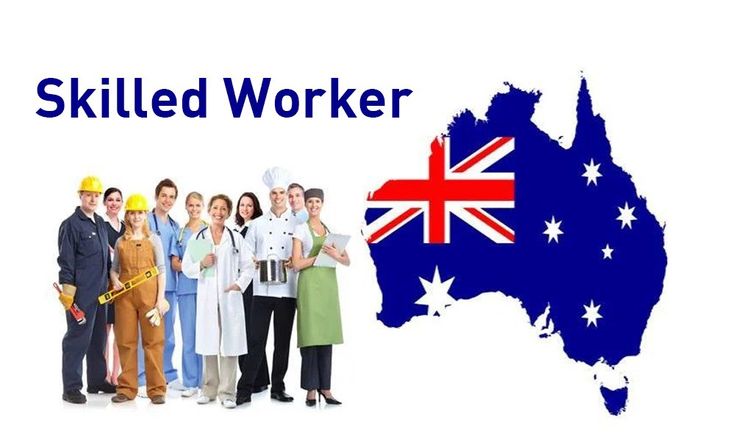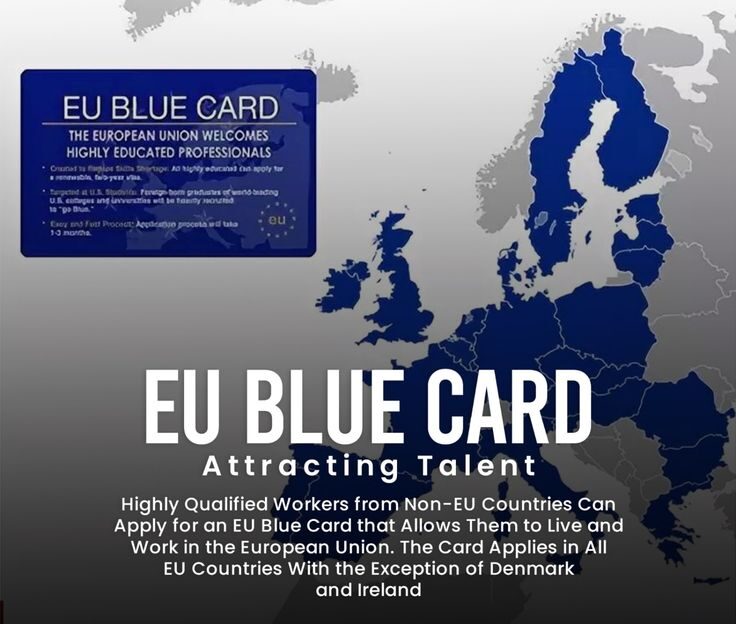Australia is a top destination for professionals worldwide, and early childhood educators are in increasing demand. Schools, childcare centers, and community organizations seek highly qualified individuals who bring not only expertise and passion but also the ability to connect with young learners. For international educators wanting to work in Australia, understanding the visa sponsorship process is paramount. This guide explores the pathway for early childhood educator jobs along with detailed information about visa sponsorship.
Overview of Early Childhood Educator Jobs in Australia
Australia’s early childhood education (ECE) sector is flourishing. With a strong emphasis on holistic learning and the right mix of play and structured education, Australian educators are now critical in developing future-ready children. Employers offer competitive salaries, benefits, and opportunities for professional growth. The demand for ECE professionals is matched by supportive government policies that enable simplified visa pathways for qualified practitioners. This is particularly true in contexts where employers want to secure the best talent from abroad.
Results
#1. What is your current employment status?
#2. Which continent are you currently living in?
#3. What is your highest completed level of education?
#4. What is your gender?
#5. What is your preferred work location?
#6. What type of work are you most interested in?
In today’s competitive market, Australian employers recognize the value of hiring educators with varied international experience. Moreover, the integration of technology and innovative learning methods in early years’ teaching amplifies the appeal of candidates who combine academic rigor with real-world, cross-cultural perspectives. Immigrants securing jobs benefit from programs that not only smooth the sponsorship process, but also include supplementary support such as relocation allowances and professional development funds.
The rigorous selection process for early childhood educators includes verifying qualifications, undertaking teaching assessments, and demonstrating the ability to create engaging learning environments. This process is quite similar to that for other specialized professions, such as Engineering Roles in Germany with Sponsorship, where the focus is on technical capabilities and meeting strict regulatory standards.
Eligibility Criteria and Advantages of Visa Sponsorship
For international early childhood educators, one of the first steps is to ensure you meet the eligibility criteria set by Australian immigration authorities. These criteria typically include recognized teaching qualifications, relevant work experience, English language proficiency, and, sometimes, additional certifications specific to early childhood education. After meeting these prerequisites, your potential employer must be willing to sponsor your visa application. Sponsorship is an appealing prospect because it reduces the stress of applying on your own and provides an employer-backed endorsement of your skills.
Visa-sponsored roles in the ECE sector offer numerous advantages:
- Job Security and Stability: Employers that invest in visa sponsorship typically conduct extensive background checks and skill assessments, ensuring you are entering a stable work environment.
- Professional Growth: Working in Australia provides exposure to innovative teaching methods, state-of-the-art facilities, and a diverse community that nurtures continuous professional development.
- Pathways to Permanent Residency: Many temporary visa options include clear pathways to permanent residency, making long-term settlement in Australia attainable.
If you are exploring opportunities in other fields, you might also consider reviewing opportunities such as Chef Positions in Australia: Visa Sponsorship for Culinary Professionals, where rigorous selection processes and an emphasis on local talent ensure high standards.
Essential Qualifications and Professional Requirements
Gaining employment as an early childhood educator in Australia starts with ensuring that your qualifications meet local standards. Australian employers generally require a bachelor’s degree in early childhood education or a related field, coupled with registration with the relevant state regulatory body. In many instances, international qualifications must be assessed for equivalence by Australian authorities. Aside from academic credentials, hands-on experience and evidence of continual professional development are invaluable.
Additionally, educators may need to pass background checks, obtain a Working With Children Check (or equivalent), and sometimes complete courses in child safety and first aid. These steps ensure that early childhood education remains a safe and enriching environment for every child.
As a comparison, similar stringent requirements exist in other sectors. For instance, many professionals might be interested in opportunities such as Teaching Jobs in the UAE (Dubai/Abu Dhabi) with Sponsorship Packages, where comprehensive qualification assessments are also a key component to securing a visa-sponsored role.
Benefits of Working in Early Childhood Education in Australia
Working as an early childhood educator in Australia has significant personal and professional rewards. Educators play an essential role in shaping the formative years of children, influencing their social, emotional, and cognitive development. In addition to the personal satisfaction of making a positive impact, the role offers several tangible benefits:
- Competitive Salary Packages: Australian salaries for early childhood educators are competitive. When you factor in visa sponsorship, additional benefits like relocation support and training allowances add extra value to the compensation package.
- Work-Life Balance: The Australian work culture often emphasizes a good balance between work and life. Educators are usually afforded reasonable hours, ample vacation, and a supportive work environment.
- Professional Recognition: Successful educators gain respect in the community and often have a voice in shaping educational policies. Being part of a progressive education system can be incredibly rewarding.
Furthermore, other sectors offer similar benefits. For example, the health sector in New Zealand includes programs like Nursing Opportunities in New Zealand for Foreign Nurses + Visa Info, which share the same philosophy of drawing upon international expertise with strong support systems in place.
Navigating the Visa Sponsorship Process
A key component for international early childhood educators is understanding the visa sponsorship process in Australia. The process typically involves the following steps:
- Employer Nomination: Once an employer has selected a candidate, they must submit a nomination to the Department of Home Affairs.
- Visa Application: The educator then applies for the appropriate visa category, supported by the employer’s nomination and any evidence of professional qualifications.
- Skills Assessment: This often includes professional assessments to demonstrate that the candidate meets required standards.
- Decision and Issuance: Finally, after the assessment and additional checks (such as health and character), the visa is approved and issued.
Each step requires careful documentation and compliance with current immigration policies. Prospective educators should keep abreast of any changes in visa regulations, as policies can evolve based on labor market needs and economic conditions.
The process is not unlike securing roles in different industries. Take, for example, Truck Driver Jobs in Australia: Visa Sponsorship & Licensing. While the nature of the work differs, the sponsorship, documentation, and regulatory assessments follow similar tracks.
In-Depth Tables on Visa Sponsored Opportunities
Below are three categories of tables generated from our topics list. Two of the tables relate to job positions that are visa-sponsored, listing job titles with embedded backlinks and salary expectations (in AUD). The third table features educational and family sponsorship programs, complete with their respective hyperlinks.
Table 1: International Visa Sponsored Job Listings
| Job Title | Salary Expectation (AUD) |
|---|---|
| Warehouse Operative Jobs in Germany with Visa Assistance | 45,000 – 50,000 |
| Retail Management Jobs in Canada for Immigrants with Sponsorship | 65,000 – 75,000 |
| Entry-Level Jobs in the UK with Visa Sponsorship for Recent Graduates | 48,000 – 55,000 |
| No IELTS Required Jobs in Canada with Visa Sponsorship | 50,000 – 58,000 |
Each role in this table reflects promising international opportunities available to skilled professionals, presenting competitive salaries that are expressed in Australian dollars.
Table 2: Visa Sponsored Tech and Technical Roles
| Job Title | Salary Expectation (AUD) |
|---|---|
| Skilled Trades Apprenticeships in Australia with Visa Pathways | 55,000 – 65,000 |
| Companies Known for Sponsoring Visas in the UK Tech Sector | 75,000 – 85,000 |
| Work Opportunities in Germany for English Speakers (Visa Guide) | 60,000 – 70,000 |
| Easiest Jobs to Get Visa Sponsorship for in Canada (2025 Guide) | 55,000 – 62,000 |
This table highlights positions in technical and skilled trades roles that, although outside the education sector, illustrate the broad application of visa sponsorship in various industries.
Table 3: Educational and Family Sponsorship Programs
| Program/Option | Link |
|---|---|
| Top 10 Fully Funded Scholarships for International Students Worldwide (2025-2026) | An extensive program offering a variety of fully funded opportunities. |
| How to Secure Scholarships in Canada for Masters & PhD Programs | Guidance for applicants seeking advanced research opportunities. |
| USA University Scholarships for International Undergraduates | Scholarships designed for undergraduate students entering U.S. universities. |
| Government Scholarships in Europe | Opportunities provided by governments across Europe. |
| Scholarships in Australia Without IELTS/TOEFL | A pathway for students to pursue education without standard English tests. |
| Family Reunification Visas in Germany | Programs facilitating family migration processes. |
| Australian Partner and Family Visa Options | Options for partners and families seeking migration pathways. |
| USA Family-Based Immigration Green Cards | Guidance on acquiring family-based immigration statuses. |
| UK Spouse, Partner, and Family Visas | Visa options for family members in the United Kingdom. |
| Canada Family Sponsorship Program | Programs designed to support family reunification in Canada. |
While this table is not focused on job listings, it provides valuable insight into different educational opportunities and family sponsorship programs that complement the professional migration narrative.
How to Stand Out: Tips for Securing a Job
In the competitive field of early childhood education, preparing an outstanding application package is crucial. Ensuring that your resume, cover letter, and portfolio reflect not only your academic qualifications but also your passion for early years education can set you apart from the competition. Crafting compelling narratives about your teaching philosophy, classroom successes, and hands-on experience is essential. Tailor each application to highlight your adaptability, cultural sensitivity, and commitment to nurturing young minds.
It is also valuable to consider related initiatives in international job markets when building your profile. For instance, engaging with programs like Post-Graduation Work Permit (PGWP) in Canada can offer additional perspectives on how visa-sponsored roles are structured. These experiences—though in different sectors—reinforce the idea that thorough preparation and continuous professional development are keys to success.
Along with a strong application package, networking is another cornerstone of success. Attending education job fairs, joining professional associations for early childhood educators, and connecting with alumni can lead to valuable job leads and insider advice. Many employers also value candidates who have practical experience gained through volunteer work or short-term contracts. In today’s market, even a brief stint in a local childcare setting can significantly bolster your profile.
Finally, keep an eye on emerging trends and potential changes in immigration policy. Subscribing to industry newsletters, joining online communities, and engaging with official government resources can help you stay updated on any new opportunities or adjustments to visa requirements. By demonstrating that you are well-informed and proactive, you set an excellent example of the qualities expected of a successful educator.
Future Prospects and Emerging Trends
Looking ahead, the outlook for early childhood educators in Australia appears bright. With increasing government investment in education and the ongoing evolution of learning methodologies, the sector is likely to see continuous growth. This progress not only increases job opportunities but also drives further improvements in career development and compensation packages.
Digital innovation is another trend that is beginning to influence early childhood education. Many institutions now incorporate educational technology into their curriculum. This shift requires educators to remain adaptable and continually upgrade their digital skills. Such transformations create additional training opportunities and often come with financial incentives and support programs for educators.
The future may also see more collaboration between institutions worldwide. For example, educators who have experienced international teaching environments bring fresh perspectives, enriching local practices while also gaining access to global professional networks. The integration of diverse educational approaches further strengthens Australia’s reputation as a hub for early childhood education excellence.
In this context, learning about the mechanisms behind visa-sponsored roles can be crucial. Consider the insights available in Australia Subclass 482 (TSS) Visa: Temporary Skill Shortage Guide. This resource provides a detailed breakdown of temporary visa pathways and highlights the broader relevance of skills-based migration. Keeping abreast of such information ensures that you are informed about your rights, responsibilities, and potential career progression opportunities.
Furthermore, by understanding future trends in education, you can better align your skills with market demands. Emphasizing soft skills, technological proficiency, and a strong pedagogical background will be essential. As early childhood education continues to innovate, so too will the support structures around visa sponsorship, training programs, and career progression.
Expert Tips for Job Application Success
Securing your dream role as an early childhood educator in Australia takes more than just meeting the minimum qualifications. It involves a strategic approach to your application and continuous professional development. Here are some expert tips to help you maximize your opportunities:
- Customize Your Application:
Tailor your resume and cover letter to focus on experiences that match the job description. Highlight projects, curriculum development, or any initiatives that show your dedication to fostering early learning environments. - Build a Professional Portfolio:
A digital or physical portfolio that includes lesson plans, classroom activities, and evidence of student engagement can be very persuasive during the interview process. Consider including testimonials from previous employers or parents, and any professional awards or recognitions received. - Leverage Professional Networks:
Connecting with other educators through industry associations, online forums, and educational events can help you gain access to exclusive job opportunities. Networking might even lead to mentorships that further develop your skillset. - Prepare for the Interview:
Research the school or center you are applying to and be ready to discuss how your background in early childhood education aligns with their pedagogical vision. Practice commonly asked questions and prepare insightful questions that reflect your commitment to the role. - Utilize Visa Support Resources:
In addition to preparing for your teaching role, invest time in understanding the visa sponsorship process. Some countries provide detailed guides on visa requirements and application procedures. Learning from similar fields, such as Post-Graduation Work Permit (PGWP) in Canada, helps in understanding the intricacies of applying for sponsored roles, even if your field is early childhood education.
An informed application not only boosts your confidence but also sends a positive signal to employers that you are ready to contribute effectively from day one. With the right preparation and clear communication of your capabilities, you can navigate the complexities of the Australian job market with ease.
Future Prospects and Long-Term Career Growth
The career path for early childhood educators in Australia is continuously evolving. As Australia’s population diversifies and educational methods become more innovative, the need for experienced, passionate educators is only expected to grow. Long-term career growth in this field can manifest as opportunities in administrative roles, curriculum planning, teacher training, and leadership positions in education institutions.
Government initiatives to improve educational frameworks, including funding for research in early childhood learning, will likely translate into additional job creation and enhanced career pathways. Moreover, as international teaching experience is increasingly valued, having visa sponsorship on your resume can open doors to further professional opportunities both within Australia and globally.
Connecting your career with global trends is also important. For instance, understanding migration pathways like Australia Subclass 482 (TSS) Visa: Temporary Skill Shortage Guide can provide insights into how temporary work opportunities may evolve into permanent roles in the future. This visa category is frequently used across various sectors, underscoring the importance of having up-to-date knowledge of immigration and employment policies.
Investing in professional development through workshops, courses, and further studies, including postgraduate qualifications, not only enhances your teaching capabilities but also positions you favorably for promotions and specialized roles. As Australia continues to lead in early childhood education innovation, your commitment to lifelong learning and adaptability will be major assets.
Conclusion and Further Resources
In summary, Australia presents a multitude of opportunities for early childhood educators through robust job markets and supportive visa sponsorship programs. Whether you are an experienced educator or a recent graduate, the pathway to working in Australia is enriched by clear processes, comprehensive support systems, and competitive compensation packages. Your passion for nurturing young minds, combined with the right qualifications and professional preparation, is the key to unlocking a fulfilling career in one of the world’s most forward-thinking education systems.
Throughout this guide, we have touched upon various aspects of obtaining and succeeding in early childhood educator roles in Australia. From eligibility and application tips to the benefits of permanent residency and long-term career growth, each section has been designed to offer you actionable insights. For further reading on international migration pathways and recognition of professional skills, you may find Understanding the Blue Card Scheme for Working in the EU particularly insightful.
🎓 Must Read
As you move forward in your career journey, remember that thorough preparation, continuous professional development, and informed application practices are essential. Whether you’re drawn to early childhood education by passion or by the promise of building a long-term future in Australia, the road ahead is filled with opportunity. Embrace the challenges, and let your unique teaching style shine on an international stage.
Australia’s reputation for quality education, combined with comprehensive visa sponsorship options, makes it an attractive destination for early childhood educators worldwide. This article has explored the nuances of obtaining a job in this vibrant sector, including the requisite qualifications, detailed sponsorship processes, and tips for a successful application. With increasing demand for skilled educators, there has never been a better time to consider taking your career to Australia.
By integrating insights from related industries—such as those in engineering, culinary arts, and even tech sectors—this guide reinforces the similarities in global visa sponsorship programs and the overall emphasis on quality, professional experience, and compliance with regulations. We hope that the tables provided above serve as a useful resource and that the tips shared herein empower you to take confident steps toward securing a visa-sponsored position.
For any early childhood educator with a passion for fostering young talent and a willingness to embrace multicultural experiences, Australia offers the perfect backdrop for professional growth and personal fulfillment. Remember, your journey may require dedication and persistence, but the rewards—a career that shapes the future—are immeasurable.









